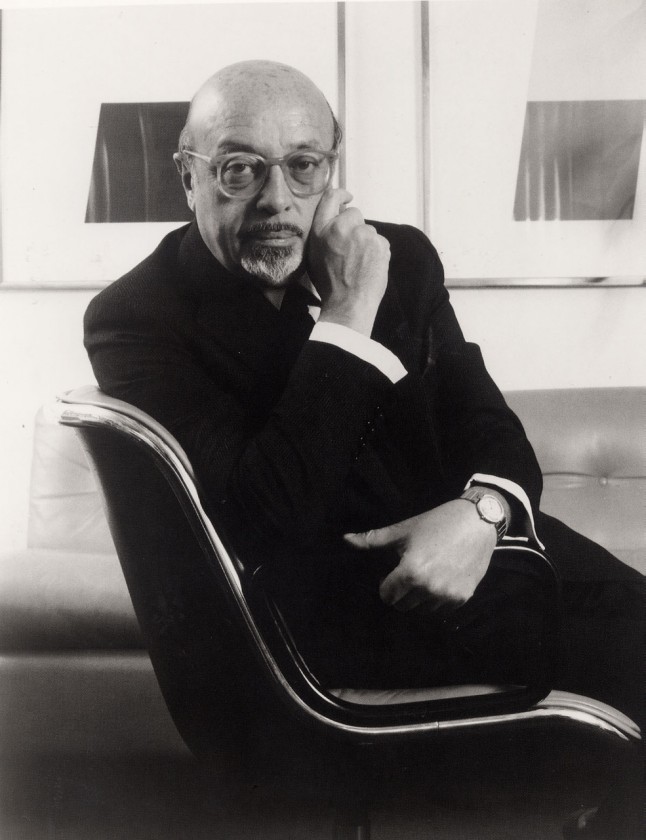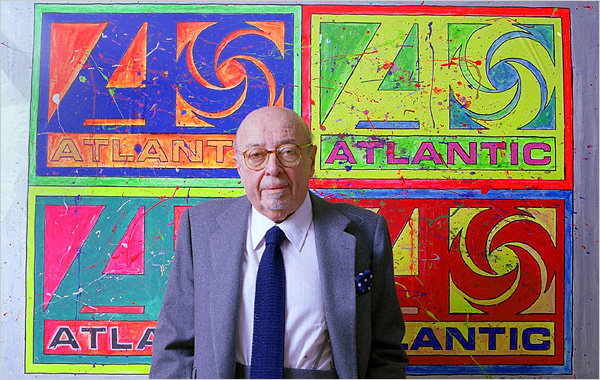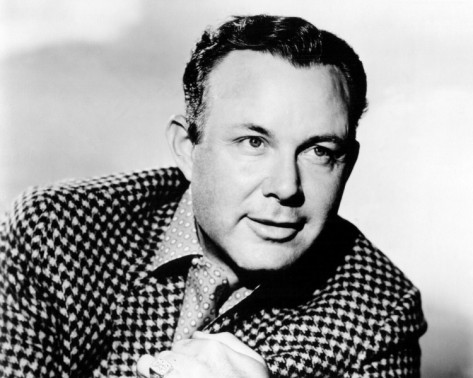
“Few people have had a bigger impact on the record industry than Ahmet, and no one loved American music more than he did.”
– David Geffen
Ahmet Ertegün ( July 31, 1923 – December 14, 2006) was a Turkish American musician and businessman, best known as the founder (with Herb Abramson) and president of Atlantic Records, and for discovering or championing artists like Eric Clapton, Phil Collins, Genesis, the Rolling Stones, Led Zeppelin, Crosby, Stills, Nash, and Young, Aretha Franklin, Ray Charles, Dusty Springfield, Yes, and more.
“When I was about 8 or 9 years old, in 1932, Nesuhi (his brother) took me to hear Cab Calloway and later Duke Ellington at the Palladium in London. I had never really seen black people except I had seen pictures of great artists like Josephine Baker—whom I spent a few days with before she died. And I had never heard anything as glorious as those beautiful musicians, wearing great white tails playing these incredibly gleaming horns with drums and rhythm sections unlike you ever heard on records. In those days, they recorded the drums and the bass very, very softly so it wouldn’t break the grooves of the 78 rpm records. So I became a jazz fan quite early and never went off the path thereafter.”
– Ahmet Ertegun

He also wrote classic blues and pop songs and served as Chairman of the Rock and Roll Hall of Fame and museum. Ertegun has been described as “one of the most significant figures in the modern recording industry.”
When not pursuing the aristocracy of British rock’n’roll – for instance making the fabled Dusty In Memphis album with Dusty Springfield – Atlantic became an influential player in homegrown American rock, picking up LA-based Buffalo Springfield, which then starred Stephen Stills and Neil Young. The Allman Brothers, Foreigner, Stevie Nicks, Roberta Flack, Jewel, Sean Paul and Matchbox 20 all joined Atlantic. The company remained a magnet for talent, because of its track record and Ertegun’s in-house production team of Jerry Wexler, Arif Mardin and Tom Dowd. Atlantic also enjoyed a reputation for not systematically fleecing its artists in notorious Tin Pan Alley fashion.
(The Guardian)
The story of Atlantic Records is the story of Ahmet Ertegun. Here is a good documentary telling his story.
The Atlantic Records Story – Hip To The Tip (part1):
The Atlantic Records Story – Hip To The Tip (part2):
Keith Richards (shortly after Ahmet Ertegun died):
I was with Ahmet at the Beacon, ten minutes before he went to the john. He asked me how my head was, after the bang. I said, “Have a feel.” Because I have a big dent on the left side, front lobe. He was rubbing it, and we were laughing our heads off. By the time I got offstage, I’d heard what happened. It’s almost as if I cursed him. So nobody else can rub my head anymore.
I can’t remember exactly when or where we first met. Ahmet sort of insidiously crept into our lives [laughs]. He was both diplomatic and down-home. He was very different from the people who run most record labels. I remember once Mick and I having a meeting with Ahmet. He sat at his desk with his walking cane, balancing it on the top of the desk. Mick and I are trying to have a serious conversation with him, but I looked at him and realized, “Forget it, we’re getting nowhere with him today, baby.”
He knew the meaning of drama. When he came to our sessions, it was usually with a bit of fanfare and some beautiful babe on his arm — he had a bevy. He wouldn’t say much about the music. You’d get little grunts: “Damn good. That’s the shit.” He wouldn’t want to interfere. But he had his ear on everything.
With Ahmet, you weren’t dealing with some hood or lawyer or shyster, which is quite often what you get in the record business. You were talking on level terms with Ahmet. He was intimately involved with what came out under his name.
Ahmet could also get excessive. He liked to hang. And I loved to hang with him, just to hear what came out of the side of his mouth. There would be these little asides: “Screw that @#$%&,” things like that.
He was one of the Stones’ father figures. I looked up to Ahmet the way I did Muddy Waters. Until the day he died, his whole thing was to be involved with musicians. His love of the music, his joy from it, stayed with him. Otherwise, he wouldn’t have been backstage at the Beacon a couple of weeks ago. It was full circle. And that touches me.
Let’s play Dusty in Memphis in Ahmet Ertegun’s honor today:
Other 31 July:
James Travis “Jim” Reeves (August 20, 1923 – July 31, 1964) was an American country and popular music singer-songwriter. With records charting from the 1950s to the 1980s, he became well known as a practitioner of the Nashville sound (a mixture of older country-style music with elements of popular music). Known as Gentleman Jim, his songs continued to chart for years after his death. Reeves died at age 40 in the crash of a private airplane. He is a member of both the Country Music and Texas Country Music Halls of Fame.

– Hallgeir
Sources: The Guardian, Allmusic, Wikipedia
